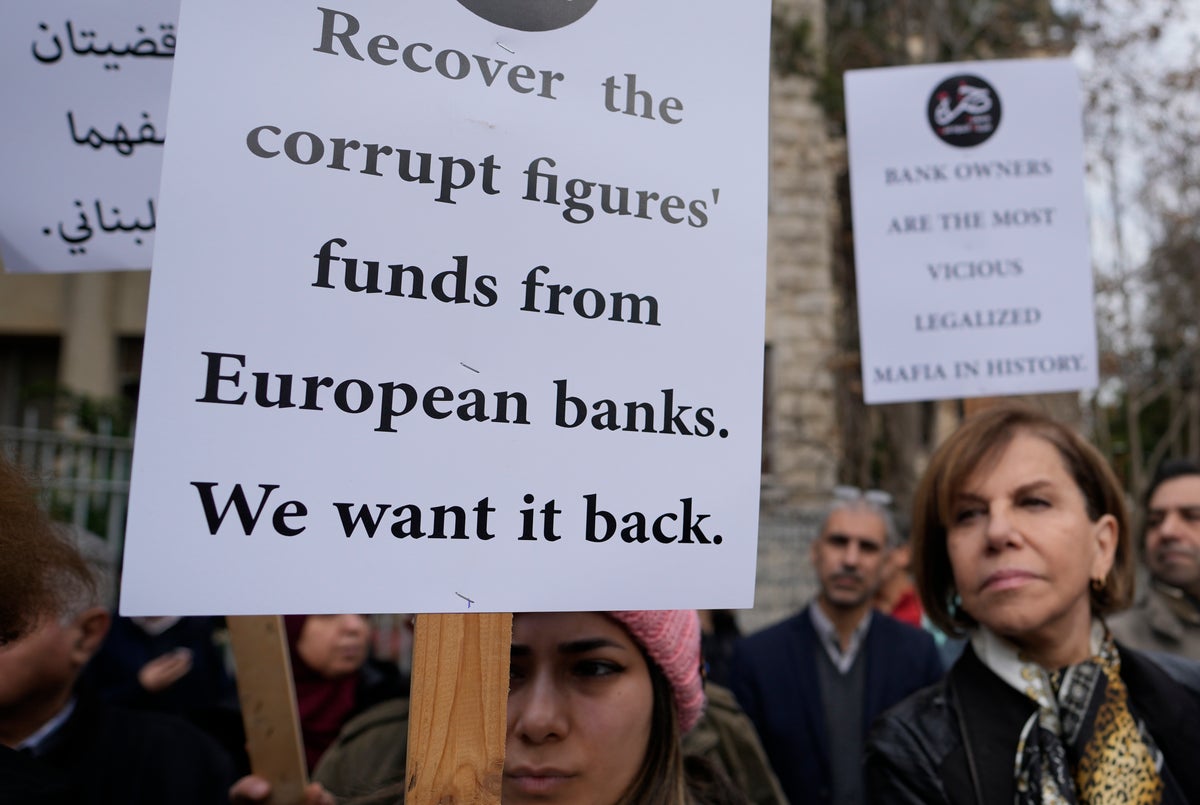
A European legal team on Friday wrapped up the first round of questioning of Lebanese bankers and current and former Central Bank officials in Beirut, officials in Lebanon said. The questioning is part of a probe on money laundering linked to Lebanon’s Central Bank governor.
Lebanon is grappling with the worst economic and financial crisis in its modern history. The economic meltdown, which began in October 2019 and is rooted in decades of corruption and mismanagement by the country’s political class, has plunged more than 75% of the tiny nation’s population of 6 million into poverty.
The European judicial delegation — with representatives from France, Germany, and Luxembourg — questioned nine people this week, including current and former central bank officials as well as the heads of several banks in the Middle East country, several Lebanese judicial officials told The Associated Press.
The officials, who are close to the probe, spoke on condition of anonymity because they were not authorized to speak to the media.
The delegation arrived in Beirut earlier this month to interrogate embattled Central Bank governor, Riad Salameh, and more than two dozen other people, some of them his close associates, in a European money laundering investigation of some $330 million.
In March last year, authorities in France, Germany and Luxembourg froze more than $130 million in assets linked to the investigation.
There have been reports that a brokerage firm, Forry Associates Ltd., owned by Raja Salameh — the brother of the Central Bank governor — was hired by the Central Bank to handle government bond sales in which the firm received $330 million in commissions.
The governor, who has denied all charges of corruption, calling them politicized, said earlier that “not a single penny of public money” was used to pay the brokerage firm.
Switzerland and Liechtenstein have also opened probes against Gov. Riad Salameh on money laundering allegations.
The Lebanese chief prosecutor's office on Friday said Lebanese judicial officials helped the European delegation in the investigation regarding money transfers in the three countries. It did not provide any further details.
It was unknown when the European delegation would return to Lebanon to continue the investigation and whether it would question the Central Bank governor himself.







